A lesson in healing, from our students
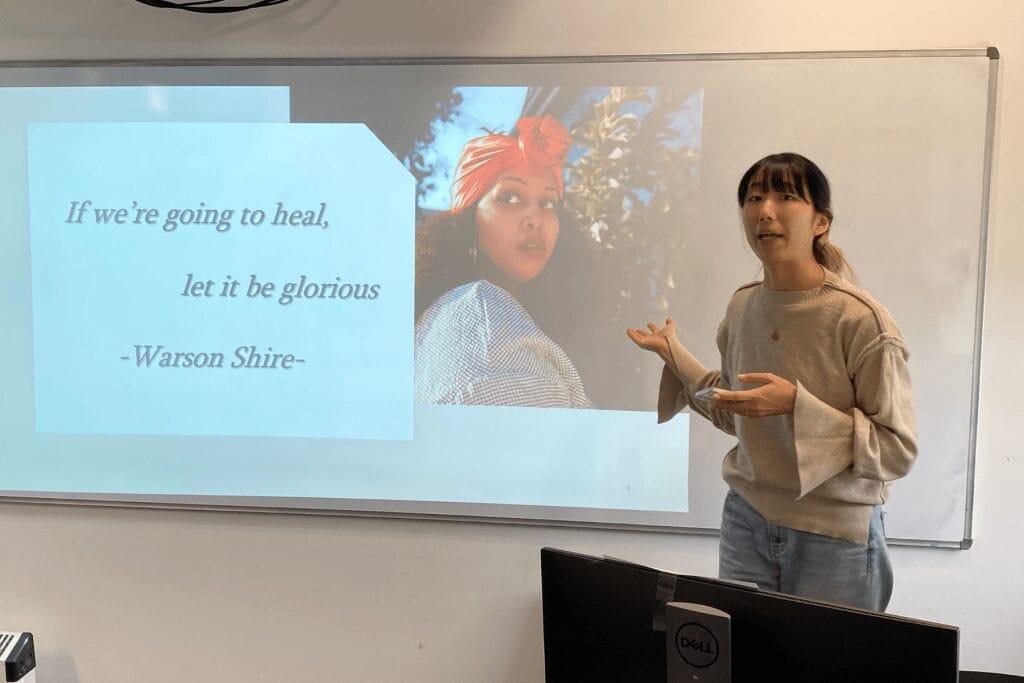
A class of students from diverse countries and backgrounds have given presentations on “Healing and Human Connections” in a special Refugee Week event at Navitas Skilled Futures Canberra.
The students – from countries including Afghanistan, Iraq, China, Myanmar, Vietnam, Japan, Mexico and Bangladesh – presented to classmates and representatives from the Canberra Refugee Service (CRS).
Referencing data, case studies and their own personal stories, the students emphasised how vital it was for them to attend classes at Navitas Skilled Futures, not only to improve their English, digital and employability skills, but also for their mental and physical wellbeing, by making friends and sharing experiences.
CRS representative Jane Lake said she was impressed by the level of the presentations, which “came from the heart”.
“What you are talking about today is so important and it is delightful to hear you talking about your language, community, communication and also healing and mental health issues. Thank you so much,” she said.
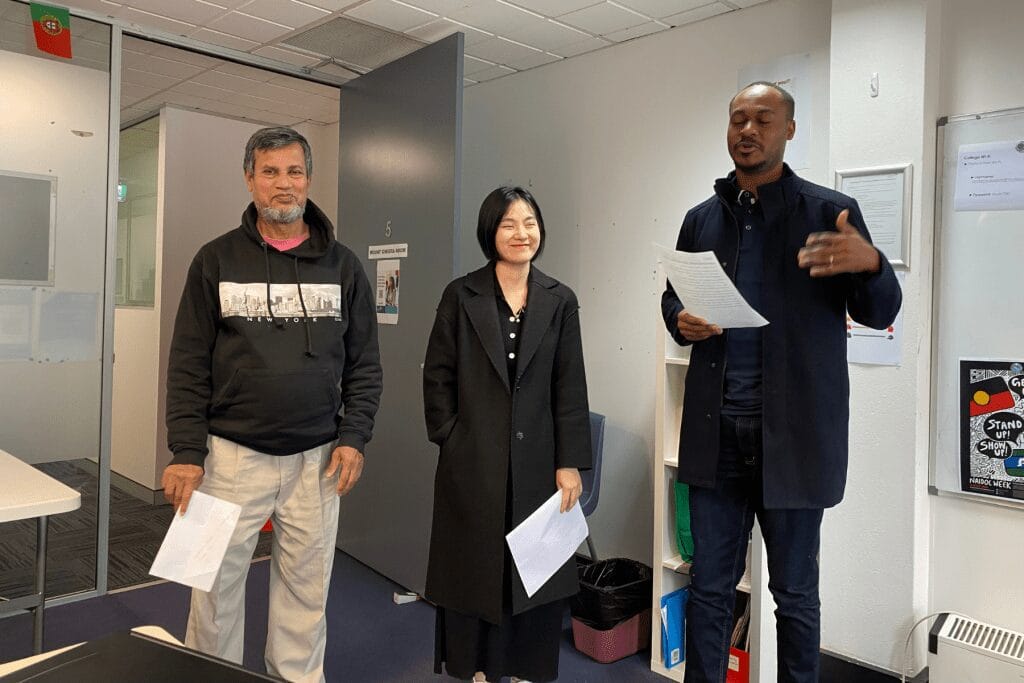
Students Nico and Iris spoke of the trauma many refugees were dealing with and how they could help themselves to heal.
“Many refugees have experienced trauma related to war or persecution that may affect their mental and physical health long after the events have occurred,” Nico, from Zaire, said.
“We all have experience on kinds of trauma. The result is people might not feel safe anymore. They don’t feel that the world is predictable … it’s these feelings that need to be restored.”
Iris, from Vietnam, said people could draw upon each other and their shared experiences to “heal wounds, learn from each other and move forward”.
“Healing can occur through storytelling, through community and also through realisation of our intrinsic interconnectedness as individuals,” she said.
Muhammad, from Bangladesh, described human connection as “when two or more people interact with each other and each person feels valued, seen and heard”.
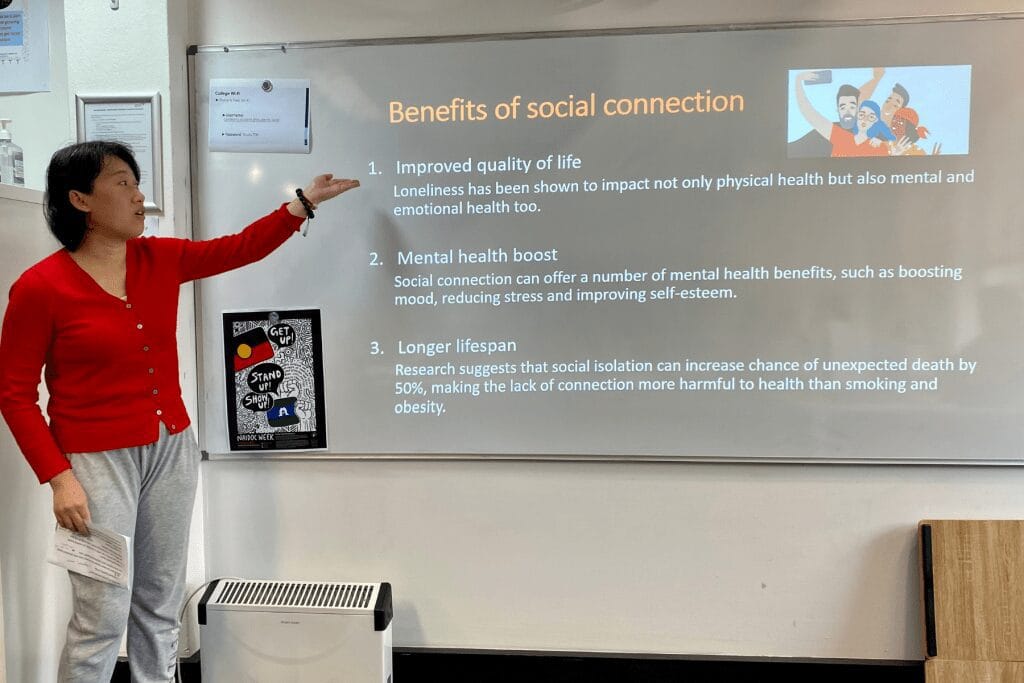
And Ran, from China, cited research showing the value of community connection was “improved quality of life, a mental health boost and longer lifespan”.
“If you want to help people, the best way is through human connection. Let’s all help each other,” she said.
Karima, from Afghanistan, said healing was “critical” for refugees and she had reduced her recent settlement stress by sharing the personal story of her traumatic arrival. She said “understanding each other, integrating into the community, and helping yourself” were some of the ways to deal with the shock of resettlement.
“Deeply from my heart I am thankful to the Australian Government, to Navitas, to the Red Cross, to everyone,” she said.
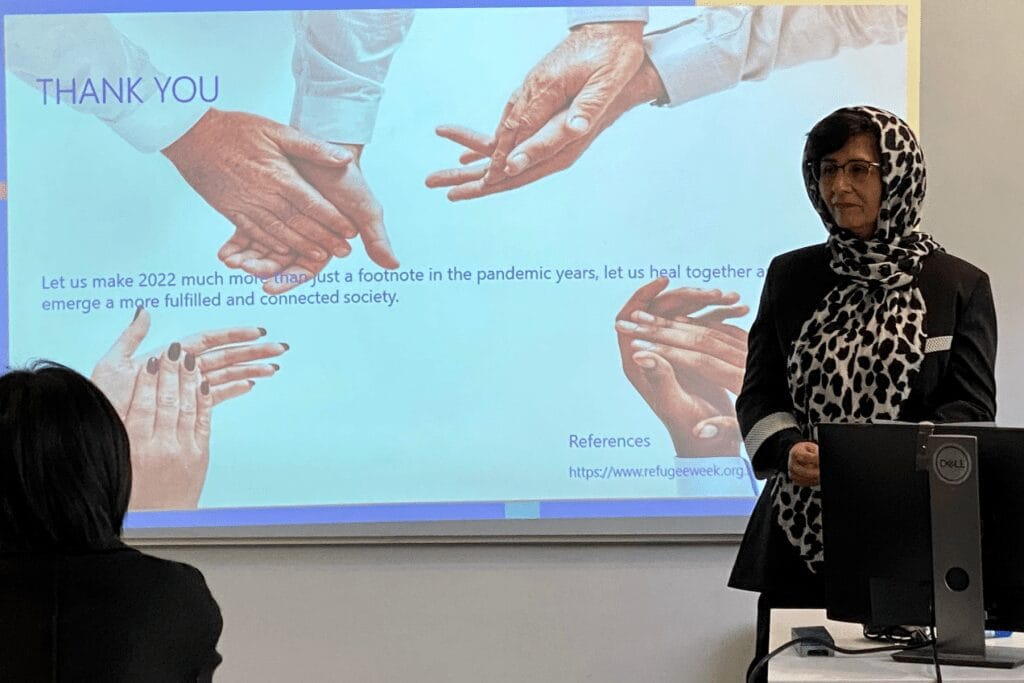
Reem, from Iraq, also gave thanks for her new life in Australia: “There are many struggles refugees go through, such as finding affordable housing, finding employment, language and communication barriers, racism and discrimination, community attitudes, impact of disrupted education on schooling and learning English.
“I want to thank Navitas and the Australian Government for this chance, really, for me and my husband and my kids to learn English and find a job here and begin a new life here.”
Snow, from China, said the benefits of coming to college could not be overstated. She told the story of the bad week she’d been having before today, due to a medical issue, and not being qualified for available jobs.
“I was crying and I tried my best to calm down but some serious things happened this morning – my daughter could not find her socks for school, my husband lost a receipt he needed to claim. They all blamed me,” she laughed.
“I can’t help crying but I decide to come here for the class and do my presentation; you see now, I’m better. This is how important it is to connect with people.”
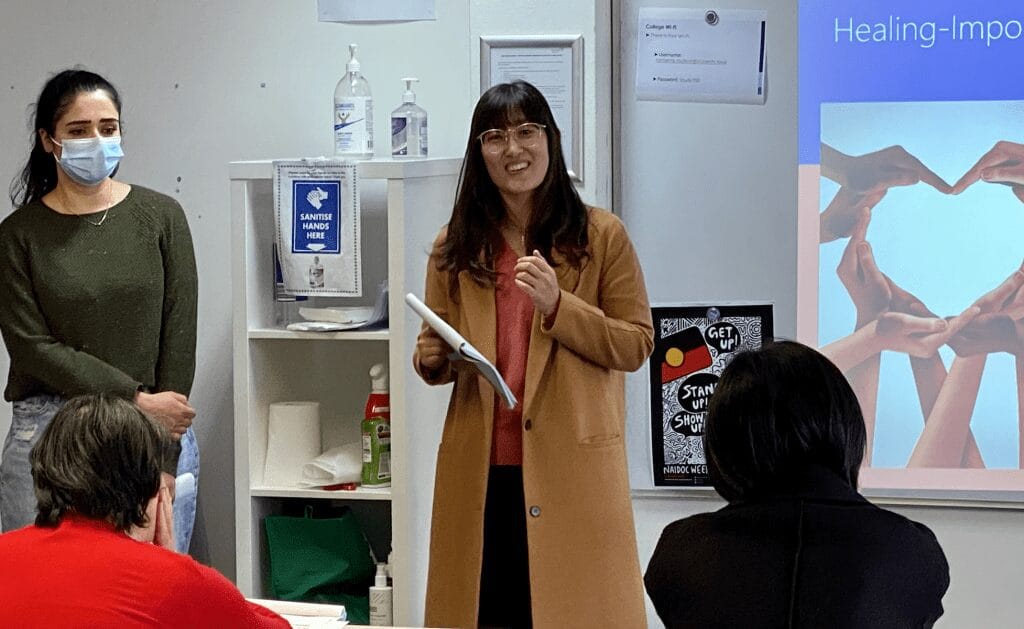
Kurumi, from Japan, borrowed a quote from Nairobi-born UK poet Warson Shire, also cited by singer Beyonce in a recent Grammy’s performance: “If we’re going to heal, let it be glorious”.
“This gives us a positive feeling to go ahead,” Kurumi said.
She recommended exercise for “feel-good” endorphins and “helping others” through volunteering opportunities, such as assisting hospital patients: “I know giving your time to others in pain is difficult now but if you do this it will help you to heal.”
Mi, from Myanmar, said the key to overcoming the challenges of being a refugee in Australia was “making connections”.
“It helped me understand Australian language, culture and customs … and helped me achieve my dreams and goals. We can all help each other and improve our quality of life together.”
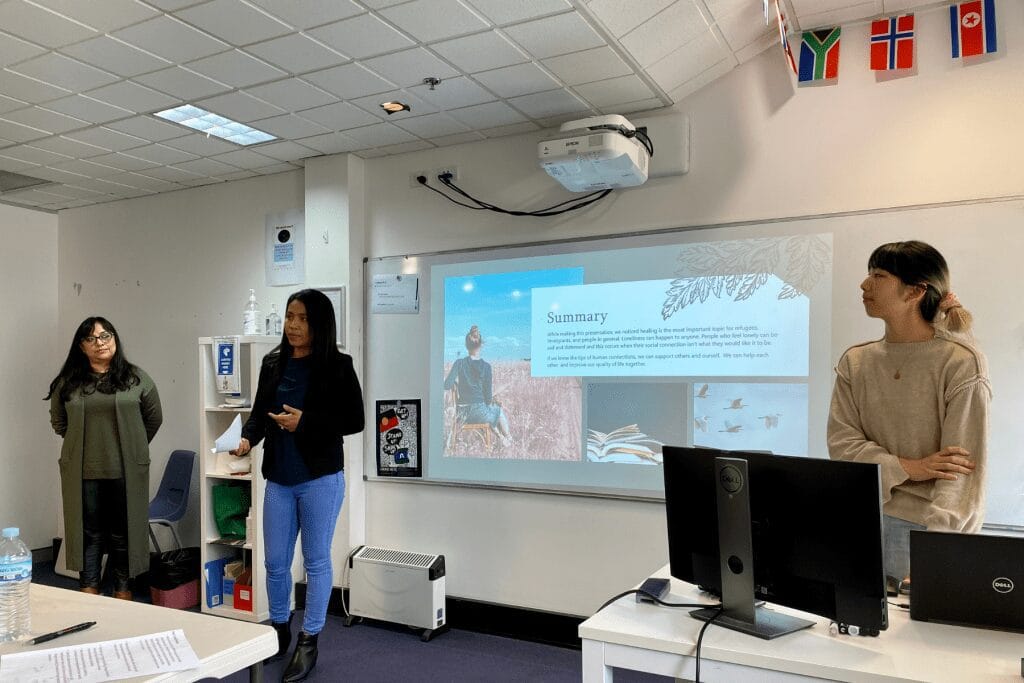
Norma, from Mexico, offered her tips for human connections: “Help others, build connections to keep people together, and pause, take a breath, and remind yourself of the person you wanted to be.”
Huirui, from China, who had just run a trail marathon the day before his presentation, gave three personal tips to new migrants and refugees: surround yourself with people with shared interests; step outside your comfort zone; and smile.
He said he made new friends through running, he thought everyone in the room overcame their resistance to public speaking in a second language by doing this presentation, and he was inspired by Kenyan long-distance runner Eliud Kipchoge, who always smiled when he felt pain: “It’s powerful for him, so we should smile,” Huirui said.
“Smiling is the international language. We may not understand a foreign language but if a foreigner smiles at us we know he’s friendly.”
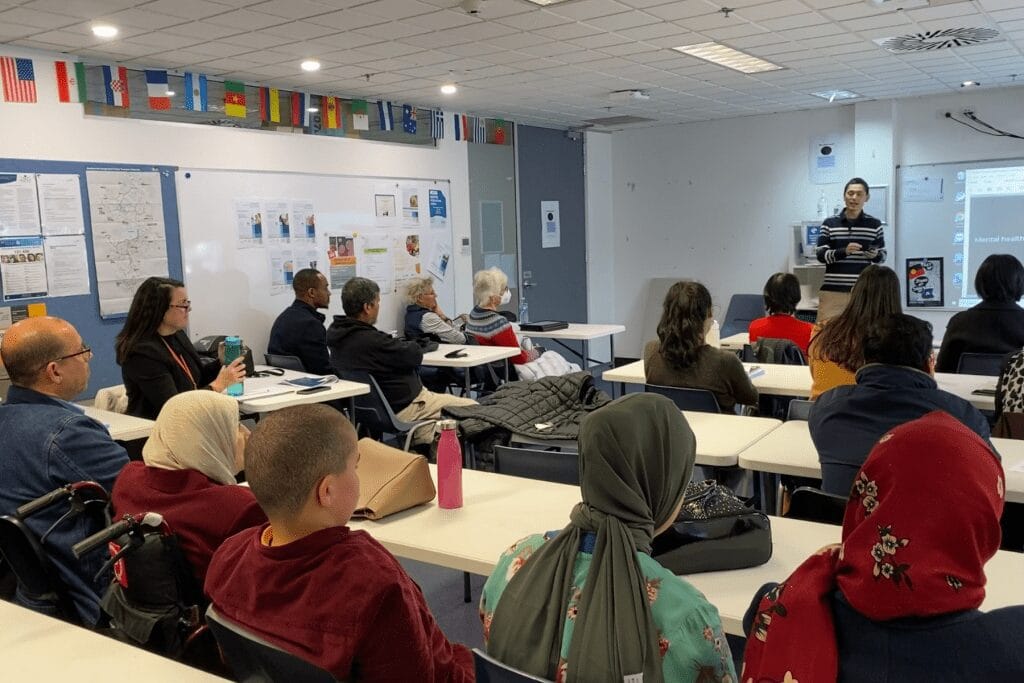
Lastly Huirui encouraged people to reconnect in person: “We should throw our phones out and give a hug to our wife, your husband, your child, your father, your mother, your friend, and say, ‘I love you’.”
Navitas Skilled Futures trainer Deanne Penman, who attended the presentations and helped with a practice session beforehand, said she was so proud of the students.
“I am astounded at how much work you have all done – it’s a credit to you,” she told them.
“The research, discussion, teamwork and the effort that you have put in to your presentations today, and some really strong messages coming through … what you’ve done today I’m sure has boosted your confidence and we’ve all learned something. What you’ve done is amazing.”
